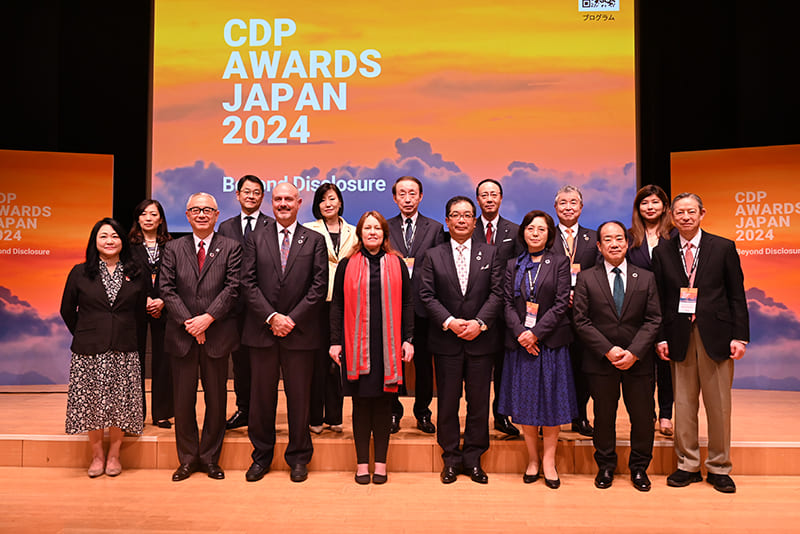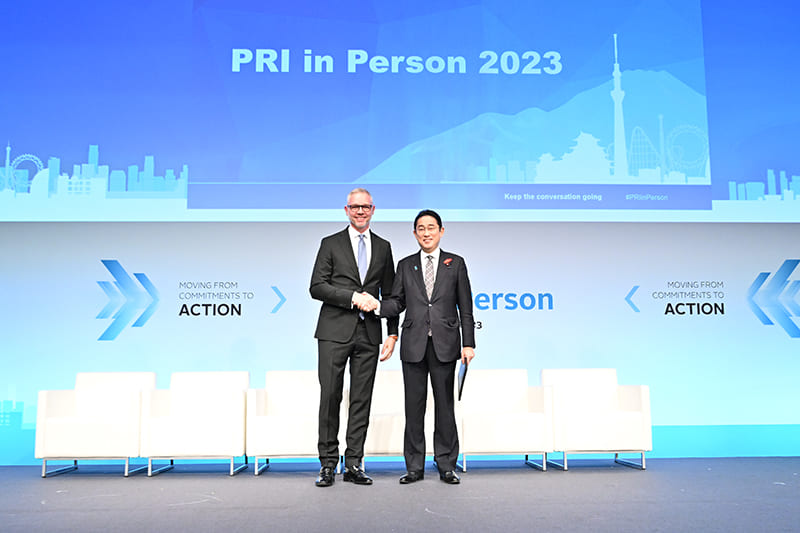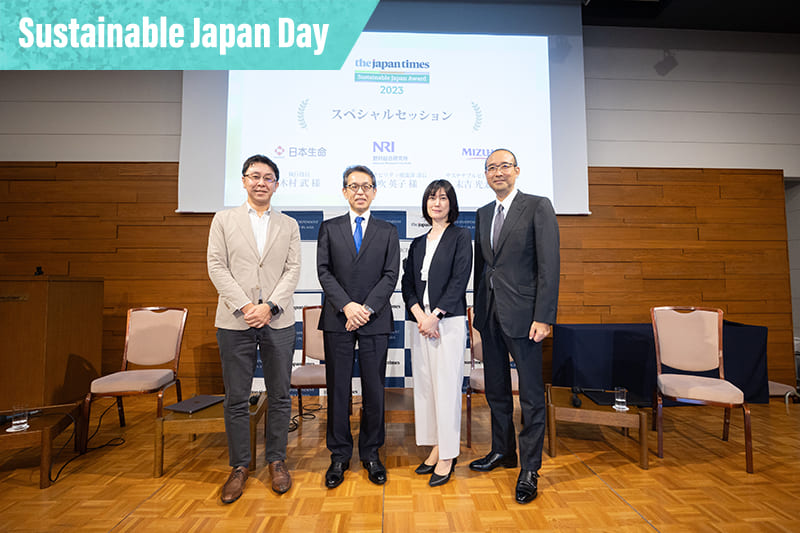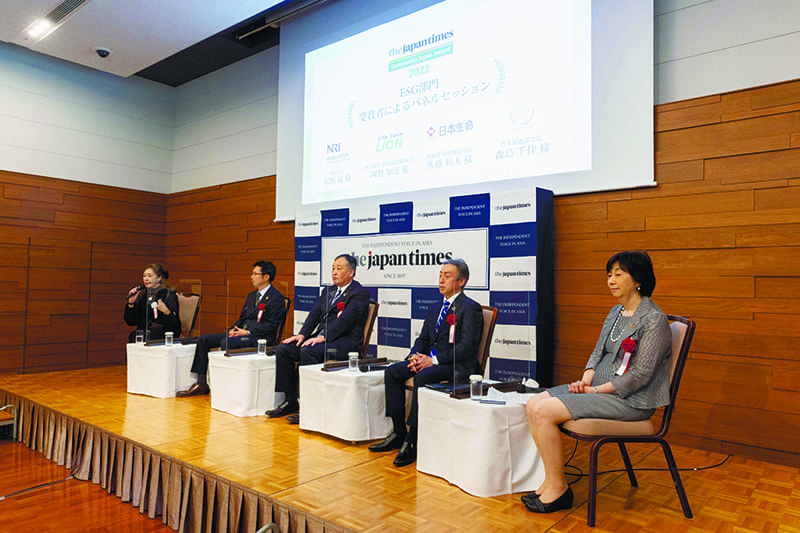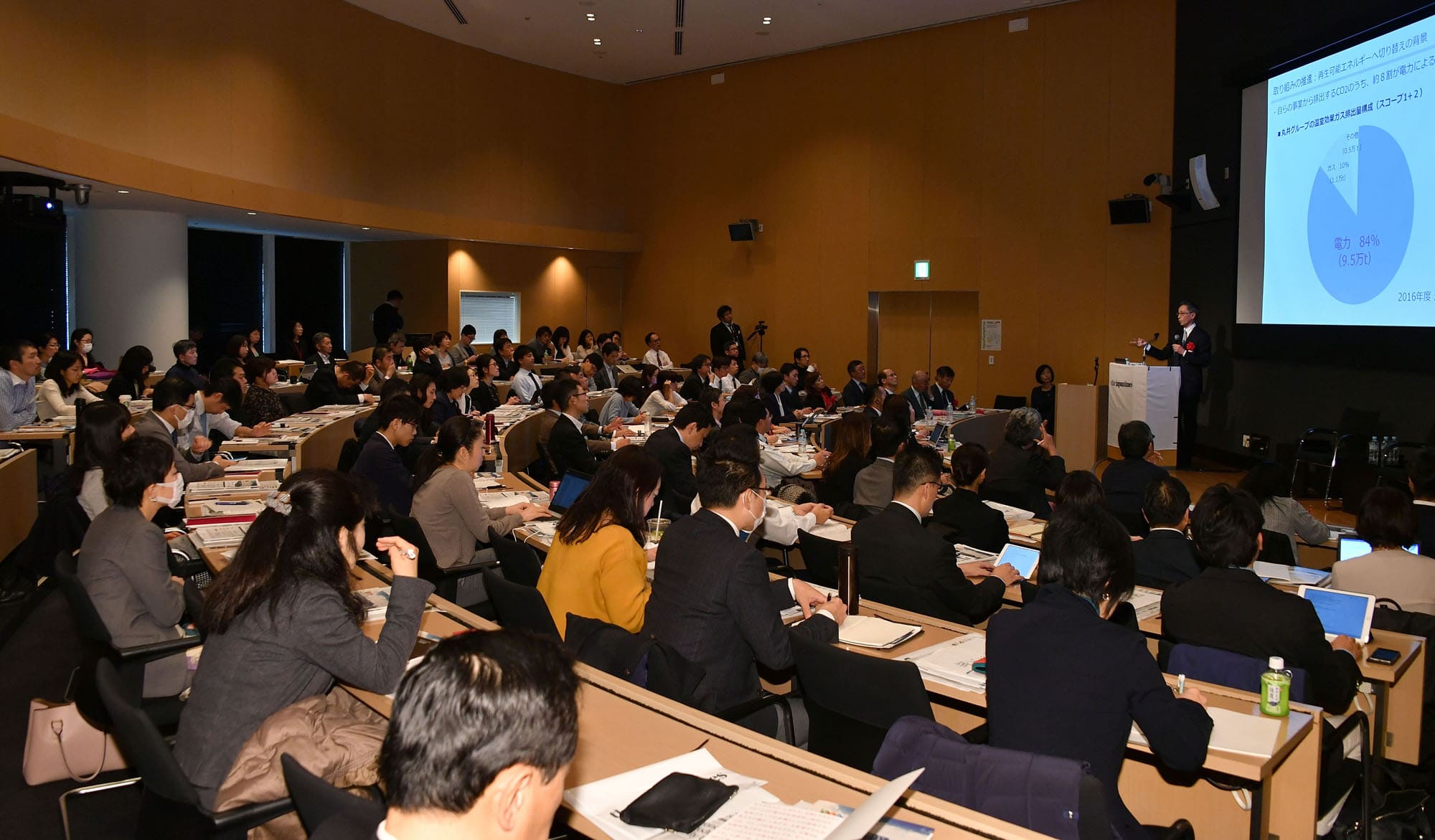May 25, 2021
Symposium explores ESG’s role toward a zero-emissions 2050
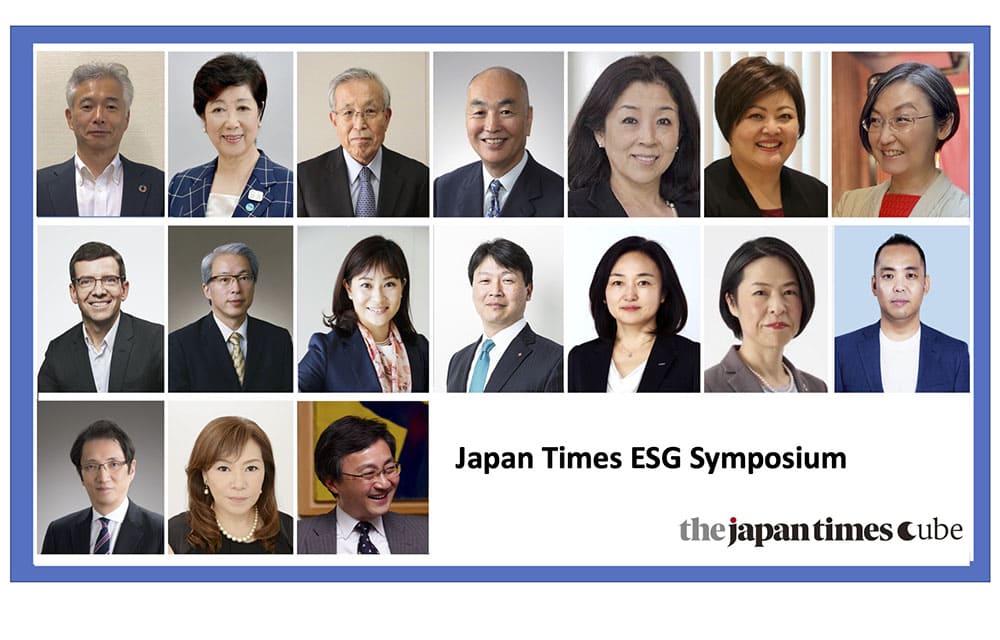
On May 13, The Japan Times hosted a symposium focused on environmental, social and governance criteria for business operations. Collectively referred to as ESG, these criteria serve as standards for investors when evaluating investment opportunities.
Comprising three panel sessions featuring prominent executives, investors and educators, this year’s symposium — based on the theme of “reaching zero emissions by 2050” — explored the role of ESG in transforming the business environment and pushing society toward a sustainable future.
The symposium opened with an address from Tokyo Gov. Yuriko Koike, who emphasized the importance of green investment, or investment activities focused on projects committed to conservation, to charge the world’s “sustainable recovery” from the coronavirus pandemic. Expressing the need to create green investment markets to address looming environmental issues such as climate change, Koike cited the establishment of sustainable energy funds and investment organizations, such as FinCity.Tokyo, as examples of how to spur economic development with environmental initiatives.
The first panel session focused on how to enhance communication about ESG with stakeholders. The session was moderated by Ken Shibusawa, chairman of Commons Asset Management, and featured panelists Jin Montesano, chief people officer at Lixil Corp.; Mariko Kawaguchi, CEO support at Fuji Oil Holdings; and Jerome Bruhat, president and representative director of L’Oreal Japan.
At the start of the session, Shibusawa recalled when panelist Kawaguchi had presciently told him about the rise of ESG 15 years ago. “The time has come for ESG. CSR is over,” he recalled her saying during their conversation, using the acronym for corporate social responsibility. At that time, ESG was still relatively unknown in mainstream business circles, but that has completely changed, according to Shibusawa: “ESG is right down the middle now. It’s on the main stage, in the minds of corporate executives and in the capital markets.”
The session addressed the notion of changing the mindsets of consumers, businesses and investors with regard to environmental and social considerations. Products produced in socially and environmentally conscious ways tend to be more expensive because they are generally more costly to produce. Therefore, businesses need to communicate the value of such considerations to stakeholders.
“If the consumers won’t buy (it) because it’s 10% more expensive, than the company won’t provide it anymore because it’s not making any money, and the investors will no longer focus on that issue,” observed Kawaguchi. She explained that this is why communication with stakeholders is key. “If the consumers change their attitude and (positively) evaluate the level of the environmentally friendly products or products concerned about human rights, the companies will be happy to produce those products, and the investors will follow.”
Each panelist introduced the environmental and social initiatives of their respective organizations. Fuji Oil, which offers food ingredients derived from plant-based oils, uses monitoring systems to combat deforestation and child labor in its supply chains, while Lixil, which engages in water and housing technology, incorporates water conservation technology into its products to provide extra value to consumers. Meanwhile, L’Oreal Japan has made efforts to reduce energy consumption by transitioning all Japan offices, factories and research sites to green electricity.
The second session focused on ESG from the perspective of investors. Moderated by Michiyo Morisawa, head of Japan at Principles for Responsible Investment (PRI) and director of CDP (Carbon Disclosure Product), the session featured panelists Hiroshi Ozeki, president and chief executive officer of Nissay Asset Management; Emi Onozuka, vice president COO of Japan Catalyst; and Masafumi Hikima, specially appointed professor at Sophia University.
The panel discussed developments in investment practices following the declaration by Prime Minister Yoshihide Suga to cut greenhouse gas emissions in Japan to net zero by 2050 and U.S. President Joe Biden’s pledge to cut U.S. emissions in half by 2030. While attending conferences and meetings with investors overseas, Ozeki observed that European investors consistently considered climate change during investment screenings, but this was not necessarily true for U.S. and Japanese investors.
Ozeki regards the recent pledges by Japan and the U.S. to cut emissions as a turning point for Japanese investors and their stance toward climate change. Reflecting this change, his asset management firm intends to fully integrate ESG into its investment activities. This integration entails enhanced transparency with stakeholders about environmental effects as well as their participation in the Net Zero Asset Managers Initiative, an international group of asset managers committed to reaching the goal of net zero greenhouse gas emissions by 2050.
Hikima emphasized the importance of teaching students about sustainable investment. He noted that, in comparison to the U.S., where some universities have been pressured by students to divest from projects that do not align with sustainability goals, students in Japan are relatively unaware of the relationship between sustainability and investment. On the other hand, Onozuka, whose Japan Catalyst investment firm encourages corporate governance reform through shareholder activism, noted an increasing interest in ESG investment and a desire among investors to participate in projects that contribute to society.
The last session explored the ESG initiatives of Japanese industry leaders. Moderated by Naonori Kimura, managing director of Industrial Growth Platform, the session featured representatives from some of Japan’s most prominent companies, including Tomomi Fukumoto, executive officer and division COO of corporate sustainability at Suntory Holdings; Fumiaki Koizumi, president of Mercari and CEO of the Kashima Antlers; and Yumi Otsuka, deputy chief sustainability officer at Toyota.
Fukumoto explained that, as a producer of beverages, Suntory is aware of the importance of cultivating water resources. As part of its sustainability initiatives, the company has developed 21 natural water sanctuaries with forests capable of cultivating water resources. In addition, Suntory aims to reduce greenhouse gas emissions to zero throughout its value chains by 2050 and completely convert the materials used in plastic bottles to plant-based materials.
Toyota’s sustainability initiatives are focused on reducing carbon emissions from new vehicles and eliminating emissions from production plants. Otsuka introduced Toyota’s Environmental Challenge 2050, which aims to achieve zero emissions at all plants by 2050 by simplifying and streamlining production processes and implementing energy-saving measures, in addition to promoting the wider use of recycled materials.
As a company whose flagship product is a marketplace for secondhand items, Mercari is contributing to the creation of a sustainable society where items are consistently reused, said Koizumi. The e-commerce company is also engaged in educational programs where elementary, junior high and high school students can learn the inherent value of commodities and the importance of exchanging this value with others.
Whether it be from the perspective of business owners or investors, the panel session revealed the importance of formulating ESG initiatives that are aligned with clearly defined organizational purposes.


